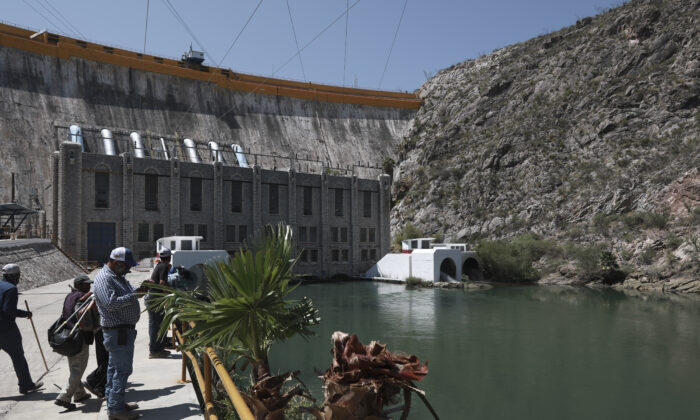Mexico excludes its commitment to the 81-year-old water sharing treaty.
Mexico has agreed to an immediate water supply to Texas farmers to resolve the growing conflict over the decades-old water sharing treaty that strained relations with the US and poses tariff threats.
The 1944 Water Treaty, which governs water sharing between the two countries through a network of interconnected dams and reservoirs, requires Mexico to deliver 1.75 million acre feet of water from the Rio Grande to the United States every five years. In return, the US offers Mexico 1.5 million acre feet from the Colorado River.
Ideally, Mexico will provide an average of 350,000 acre feet of water each year under the treaty. However, Mexico, an agency made up of officials from both governments overseeing the execution of contracts, reached just over 400,000 acres between October 2020 and October 2024, reaching less than 30% of the quota required for the current five-year cycle, according to data from the International Boundary Water Commission.
“Mexico finally meets the water needs of Texas farmers and ranchers, and the 1944 Water Treaty is a big victory for American agriculture,” Agriculture Secretary Brook Rollins said in a statement Monday. “After weeks of negotiations with Secretary of State Christopher Landau and Mexican Cabinet officials, we have secured an agreement to give Texas producers the water they need to thrive.”
The agreement helped prevent the situation from swirling into a full-scale trade dispute. Earlier this month, US President Donald Trump accused Mexico of “stealing” Texas farmers of water, threatening additional tariffs if the water issue was not resolved.
Hours after Trump’s comments, Mexican President Claudia Sheinbaum responded to X and admitted that her country had lagged behind in water supply. She thought it was lacking due to a three-year drought, but said Mexico had proposed a comprehensive plan to US diplomats aimed at meeting the needs of both countries.
Texas farming groups have long complained about Mexico’s water debt, but they welcomed the deal. The Texas Farm Bureau, the largest organisation representing farmers and ranchers in the state, calls short-term water relief an “important first step.”
The organization says that long-term water shortages have already forced the state’s only sugar mill to close, as sugar cane growers can no longer irrigate the fields. Other water-hungry crops, including citrus fruits and cotton, were also at serious risk.
“For farmers and ranchers who have long suffered due to Mexican non-compliance, immediate water delivery and water supply over the next six months is important,” Bohning said.
Water shortages also hit farmers on the other side of the border where tensions over treaty compliance caused anxiety. In September 2020, near the end of the cycle of the past five years, more than 2,000 protesters from the Chihuahua border state raided the Labockira Dam on the Conchos River in an attempt to stop the water being released to the United States. The conflict became fatal when the two were killed when Mexican military police were restrained to recapture the facility.



